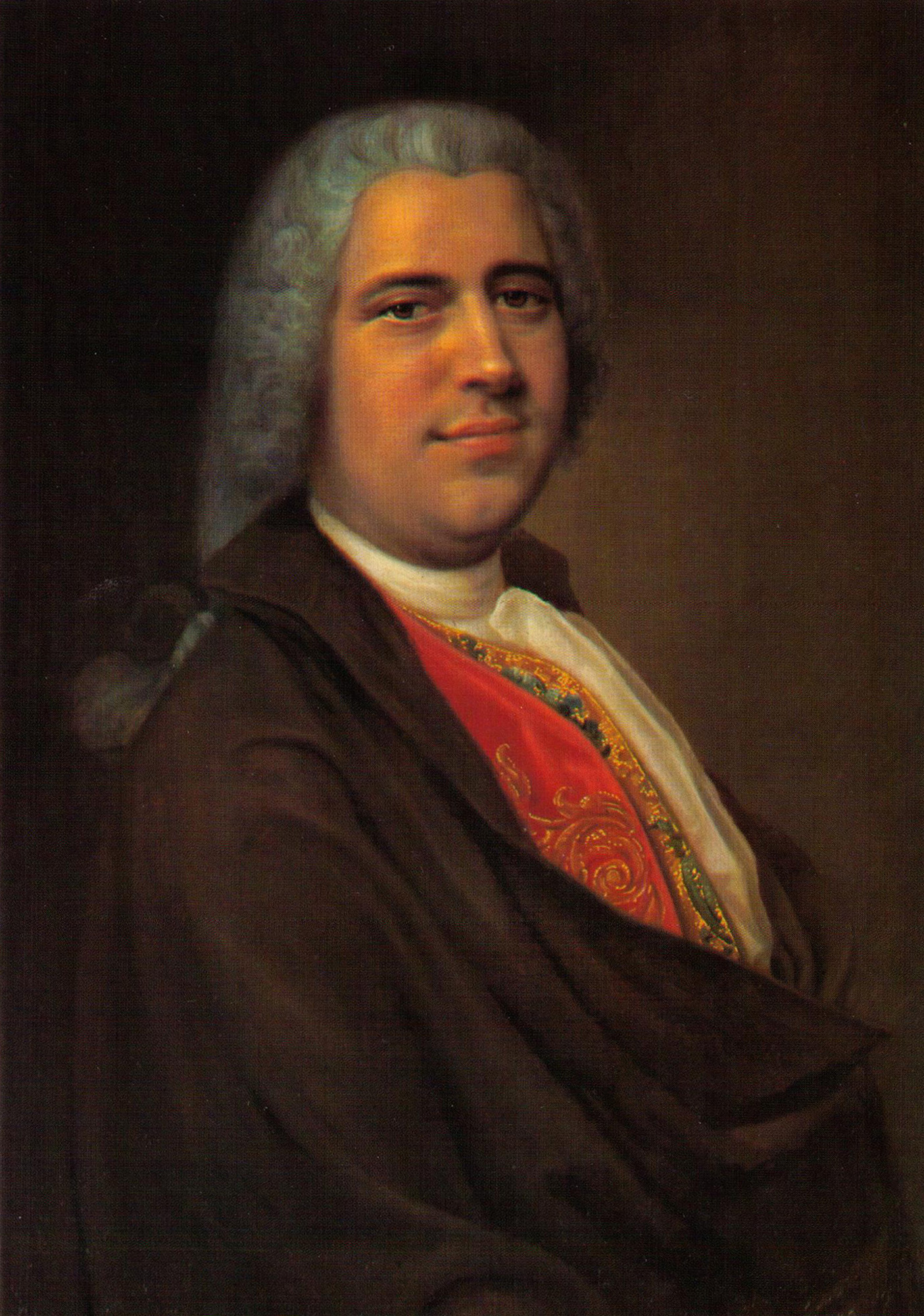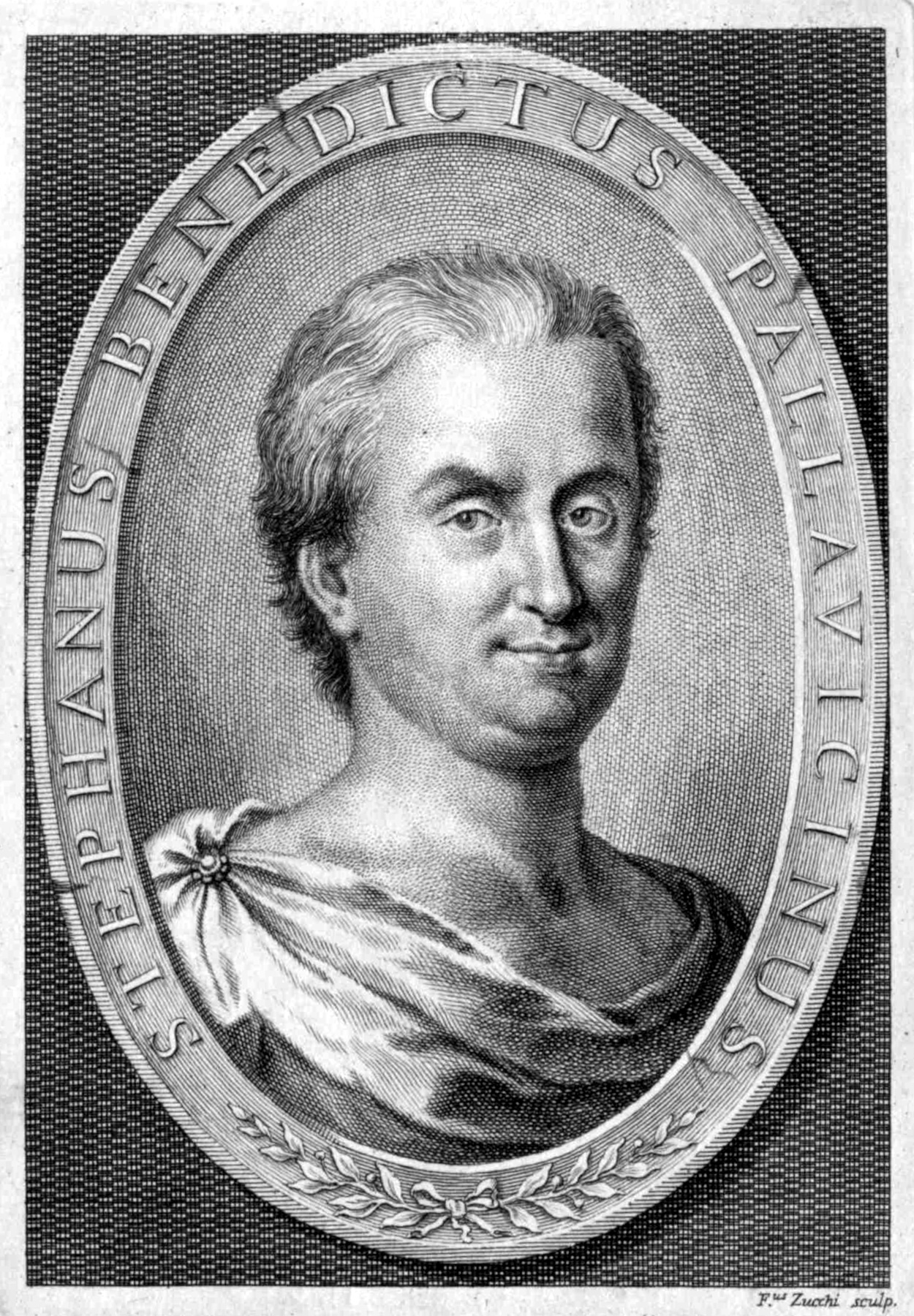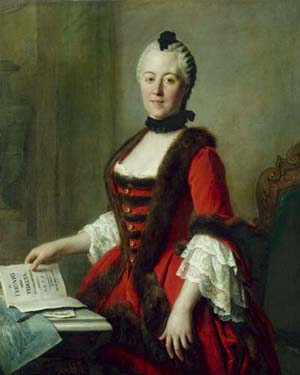|
List Of Compositions By Johann Adolph Hasse
This is a list of the musical compositions of Johann Adolph Hasse 1699–1783) sorted by genre, and then chronologically. Opera Oratorios *''Il cantico de' tre fanciulli'' (The Song of the Three Holy Children) (Stefano Benedetto Pallavicino; Dresden 1734) *''Le virtù appiè della croce'' (Stefano Benedetto Pallavicino; Dresden 1737) *''Serpentes ignei in deserto'' (Bonaventura Bonomo; Venice 1740) *''Giuseppe riconosciuto'' ( Pietro Metastasio; 1741) *''I pellegrini al sepolcro di Nostro Signore'' (The Pilgrims at the Tomb of Our Lord), Oratorio in 2 parts (Stefano Benedetto Pallavicino; Dresden 1742) *''Ci'l un parantê und parsol scelopgrini'' (Stefano Benedotto Pallavicino, 1744) *''La Caduta di Gerico'' (Giovanni Claudio Pasquini; Dresden 1745) *''Santa Elena al Calvario'' (Pietro Metastasio; 1747, second version 1772) *''La conversione di Sant' Agostino'' (The Conversion of Saint Augustine), Oratorio in 2 parts ( Maria Antonia Walpurgis von Sachsen; Dresden 1750) *''S. Pet ... [...More Info...] [...Related Items...] OR: [Wikipedia] [Google] [Baidu] |
Johann Adolph Hasse By Balthasar Denner
Johann, typically a male given name, is the German form of ''Iohannes'', which is the Latin form of the Greek name ''Iōánnēs'' (), itself derived from Hebrew name '' Yochanan'' () in turn from its extended form (), meaning "Yahweh is Gracious" or "Yahweh is Merciful". Its English language equivalent is John. It is uncommon as a surname. People People with the name Johann include: Mononym * Johann, Count of Cleves (died 1368), nobleman of the Holy Roman Empire *Johann, Count of Leiningen-Dagsburg-Falkenburg (1662–1698), German nobleman *Johann, Prince of Hohenzollern-Sigmaringen (1578–1638), German nobleman A–K * Johann Adam Hiller (1728–1804), German composer * Johann Adam Reincken (1643–1722), Dutch/German organist * Johann Adam Remele (died 1740), German court painter * Johann Adolf I, Duke of Saxe-Weissenfels (1649–1697) * Johann Adolph Hasse (1699-1783), German Composer * Johann Altfuldisch (1911—1947), German Nazi SS concentration camp officer executed fo ... [...More Info...] [...Related Items...] OR: [Wikipedia] [Google] [Baidu] |
Johann Adolph Hasse
Johann Adolph Hasse (baptised 25 March 1699 – 16 December 1783) was an 18th-century German composer, singer and teacher of music. Immensely popular in his time, Hasse was best known for his prolific operatic output, though he also composed a considerable quantity of sacred music. Married to soprano Faustina Bordoni and a friend of librettist Pietro Metastasio, whose libretti he frequently set, Hasse was a pivotal figure in the development of '' opera seria'' and 18th-century music. Early career Hasse was baptised in Bergedorf near Hamburg where his family had been church organists for three generations. His career began in singing when he joined the Hamburg Oper am Gänsemarkt in 1718 as a tenor. In 1719 he obtained a singing post at the court of Brunswick, where in 1721 his first opera, ''Antioco'', was performed; Hasse himself sang in the production. He is thought to have left Germany during 1722. During the 1720s he lived mostly in Naples, dwelling there for six or s ... [...More Info...] [...Related Items...] OR: [Wikipedia] [Google] [Baidu] |
Stefano Benedetto Pallavicino
Stefano Benedetto Pallavicino (21 March 1672 – 16 April 1742) was an Italian poet and opera librettist. He was the son of the composer Carlo Pallavicino (1630?-1688). (Their surname Pallavicino is sometimes spelt Pallavicini.) Biography Pallavicino was born in Padua. He worked at the courts of Dresden and Düsseldorf as a poet, secretary and librettist, and produced almost twenty opera librettos during his lengthy career. His opera librettos were set by the composers Agostino Steffani, Antonio Lotti, Giovanni Alberto Ristori and the German master of Italian opera seria, Johann Adolf Hasse among others. His first libretto was, ''Antiope'' (1689). He also wrote the text for the comic opera '' Calandro'' by Giovanni Alberto Ristori, which was first staged in 1726 at the castle of Pilnitz near Dresden, and then in Moscow in 1731 when it was the first opera ever performed in Russia. He later composed the libretto for the five-act opera seria ''Alfonso'' (1738) by Johan ... [...More Info...] [...Related Items...] OR: [Wikipedia] [Google] [Baidu] |
Pietro Metastasio
Pietro Antonio Domenico Trapassi (3 January 1698 – 12 April 1782), better known by his pseudonym of Pietro Metastasio (), was an Italian poet and librettist, considered the most important writer of ''opera seria'' libretti. Early life Metastasio was born in Rome, where his father, Felice Trapassi, a native of Assisi, had taken service in the Corsican regiment of the papal forces. Felice married a Bolognese woman, Francesca Galasti, and became a grocer in the ''Via dei Cappellari''. The couple had two sons and two daughters; Pietro was the younger son. Pietro, while still a child, is said to have attracted crowds by reciting impromptu verses on a given subject. On one such occasion in 1709, two men of distinction stopped to listen: Giovanni Vincenzo Gravina, famous for legal and literary erudition as well as his directorship of the Arcadian Academy, and Lorenzini, a critic of some note. Gravina was attracted by the boy's poetic talent and personal charm, and made Pietro h ... [...More Info...] [...Related Items...] OR: [Wikipedia] [Google] [Baidu] |
Giovanni Claudio Pasquini
Giovanni Claudio Pasquini (1695 – 1763) was an Italian poet and librettist. Born in Siena, he served at the court of Charles VI, Holy Roman Emperor in Vienna, first as the Italian teacher to Maria Theresa and her younger sister Maria Anna, and from 1733 as the court poet. After the death of Charles VI, he worked in the Habsburg courts of Mannheim and Dresden before returning to Siena in 1749 where he remained for the rest of his life. He wrote the libretti for numerous operas, including Caldara's '' I disingannati'', as well as courtly entertainments and oratorios. From 1754 he devoted himself to religious life and lost his sight the following year. He was appointed vice-rector of the University of Siena in 1758, but his last years were marked by financial worries when his nephew died and Pasquini became to the sole support of his five children.Mellace, Raffaele (2014)"Pasquini, Giovanni Claudio" ''Dizionario Biografico degli Italiani The ''Dizionario Biografico degli Italiani'' ( ... [...More Info...] [...Related Items...] OR: [Wikipedia] [Google] [Baidu] |
Maria Antonia Walpurgis Of Bavaria
Maria Antonia, Princess of Bavaria, Electress of Saxony (18 July 1724 – 23 April 1780) was a German princess, composer, singer, harpsichordist and patron of the arts, known particularly for her operas: ''Il trionfo della fedeltà'' (“The triumph of fidelity”) and ''Talestri, regina delle amazoni'' (“Talestri, queen of the Amazons”). She was Electress of Saxony as the wife of Frederick Christian, Elector of Saxony. Following the latter's death in 1763, she became the Regent of Saxony for their son Frederick Augustus I of Saxony. Family and background Baptized ''Maria Antoina Walpurgis Symphorosa'', she was born at Nymphenburg Palace in Munich to Archduchess Maria Amalia of Austria and Elector Karl Albert of Bavaria. Throughout her life she received an outstanding education, particularly in the arts; including that of painting and writing poetry, as well as music. She was the fourth of seven children of the Elector and his wife. Marriage A marriage by proxy t ... [...More Info...] [...Related Items...] OR: [Wikipedia] [Google] [Baidu] |
Glass Harmonica
The glass harmonica, also known as the glass armonica, glass harmonium, bowl organ, hydrocrystalophone, or simply the armonica or harmonica (derived from , ''harmonia'', the Greek word for harmony), is a type of musical instrument that uses a series of glass bowls or goblets graduated in size to produce musical tones by means of friction (instruments of this type are known as friction idiophones). It was invented in 1761 by Benjamin Franklin. Names The name "glass harmonica" (also "glass armonica", "glassharmonica"; ''harmonica de verre'', ''harmonica de Franklin'', ''armonica de verre'', or just ''harmonica'' in French; ''Glasharmonika'' in German; ''harmonica'' in Dutch) refers today to any instrument played by rubbing glass or crystal goblets or bowls. The alternative instrument consisting of a set of wine glasses (usually tuned with water) is generally known in English as "musical glasses" or the " glass harp". When Benjamin Franklin invented his mechanical version of ... [...More Info...] [...Related Items...] OR: [Wikipedia] [Google] [Baidu] |
Psalm 110
Psalm 110 is the 110th psalm of the Book of Psalms, beginning in English in the King James Version: "The said unto my Lord". In Latin, it is known as Dixit Dominus ("The Lord Said"). It is considered both a royal psalm and a messianic psalm. C. S. Rodd associates it with the king's coronation.Rodd, C. S., ''18. Psalms'', in Barton, J. and Muddiman, J. (2001)The Oxford Bible Commentary p. 396 In the slightly different numbering system used in the Greek Septuagint and Latin Vulgate translations of the Bible, this psalm is Psalm 109. This psalm is a cornerstone in Christian theology, as it is cited as proof of the plurality of the Godhead and Jesus' supremacy as king, priest, and Messiah. For this reason, Psalm 110 is "the most frequently quoted or referenced psalm in the New Testament". (footnote 1) Classical Jewish sources, in contrast, state that the subject of the psalm is either Abraham, David, or the Jewish Messiah. The psalm forms a regular part of Jewish, Catholic, Lu ... [...More Info...] [...Related Items...] OR: [Wikipedia] [Google] [Baidu] |
Psalm 111
Psalm 111 is the 111th psalm of the Book of Psalms, beginning in English in the King James Version: "Praise ye the LORD. I will praise the LORD with my whole heart". In the slightly different numbering system used in the Greek Septuagint and Latin Vulgate translations of the Bible, this psalm is Psalm 110. In Latin, it is known as Confitebor tibi Domine. It is a psalm "in praise of the divine attributes". This psalm, along with Psalm 112, is acrostic by phrase, that is, each 7-9 syllable phrase begins with a letter of the Hebrew alphabet in order. Psalm 119 is also acrostic, with each eight-verse strophe commencing with a letter of the Hebrew alphabet in order. The Jerusalem Bible describes Psalm 112, "in praise of the virtuous", as "akin to this psalm in doctrine, style and poetic structure. The psalm forms a regular part of Jewish, Catholic, Lutheran, Anglican and other Protestant liturgies. Musical settings include works by Heinrich Schütz in German, and Marc-Antoine Cha ... [...More Info...] [...Related Items...] OR: [Wikipedia] [Google] [Baidu] |
Psalm 112
Psalm 112 is the 112th psalm of the biblical Book of Psalms, a psalm "in praise of the virtuous". This psalm, along with Psalm 111, is acrostic by phrase, that is, each 7-9 syllable phrase begins with a letter of the Hebrew alphabet in order. Psalm 119 is also acrostic, with each eight-verse strophe commencing with a letter of the Hebrew alphabet. In the slightly different numbering system used in the Greek Septuagint version of the bible and in the Latin Vulgate, this psalm is Psalm 111. Text Hebrew Bible version Following is the Hebrew text of Psalm 112: King James Version # Praise ye the LORD. Blessed is the man that feareth the LORD, that delighteth greatly in his commandments. # His seed shall be mighty upon earth: the generation of the upright shall be blessed. # Wealth and riches shall be in his house: and his righteousness endureth for ever. # Unto the upright there ariseth light in the darkness: he is gracious, and full of compassion, and righteous. # A good man sheweth ... [...More Info...] [...Related Items...] OR: [Wikipedia] [Google] [Baidu] |
Psalm 113
Psalm 113 is the 113th psalm of the Book of Psalms, beginning in English in the King James Version: "Praise ye the Lord, O ye servants of the Lord". The Book of Psalms is part of the third section of the Hebrew Bible, and a book of the Christian Old Testament. In Latin, it is known as 'Laudate pueri Dominum. In the slightly different numbering system used in the Greek Septuagint version of the bible and in the Latin Vulgate, this psalm is Psalm 112. The psalm forms a regular part of Jewish, Catholic, Lutheran, Anglican and other Protestant liturgies. In Judaism, it is the first of the six psalms comprising the Hallel, a prayer of praise and thanksgiving recited on Rosh Chodesh (the first day of the Hebrew month) and Jewish holidays. In Catholicism, it is one of the psalms included in the vespers service. It has been set to music often, notably by Claudio Monteverdi in his ''Vespro della Beata Vergine'' of 1610. Text Hebrew Bible version Following is the Hebrew text of Psal ... [...More Info...] [...Related Items...] OR: [Wikipedia] [Google] [Baidu] |
Carus-Verlag
Carus-Verlag is a German music publisher founded in 1972 and based in Stuttgart. Carus was founded by choral conductor Günter Graulich and his wife Waltraud with an emphasis on choral repertoire. The catalogue currently includes more than 26,000 works (January 2016). The company produces the standard editions of the complete works of Josef Rheinberger and Max Reger.''Harald Wanger, Rheinberger-Archivar, Organist, Pädagoge'' Harald Wanger, Franz-Georg Rössler, Robert Allgäuer - 2003 p. 48 Carus-Verlag, Musikalische Schätze abseits bekannter Pfade - Harald Wanger und der Carus-Verlag "Für den Carus-Verlag ist die Verbindung zu Harald Wanger und dem Josef Rheinberger-Archiv ein Glücksfall." Record label The company also produces CDs to accompany some of its printed editions. Currently the publishers are working on recordings accompanying the complete editions of Wilhelm Friedemann Bach. Opera rarities include Schubert's '' Sakuntala'' and Johann Rudolf Zumsteeg's ''Die G ... [...More Info...] [...Related Items...] OR: [Wikipedia] [Google] [Baidu] |




.jpg)

